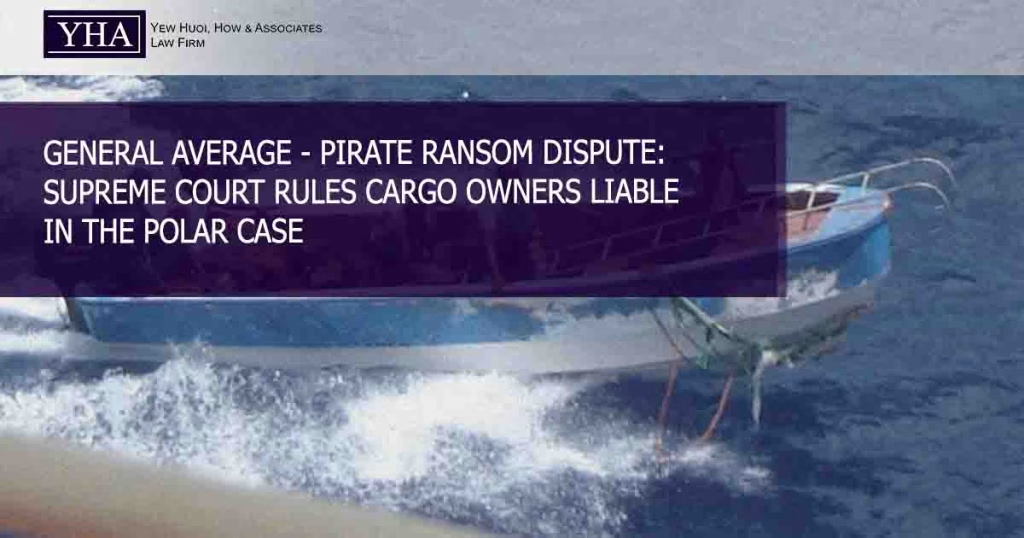Summary and Facts
The case Herculito Maritime Ltd & Others v Gunvor International BV & Others (The “Polar”) [2024] 1 Lloyd’s Rep. 85 involves the vessel MT Polar, seized by Somali pirates in the Gulf of Aden from 30.10.2010 to 26.8.2011 during its route from St Petersburg to Singapore. The shipowner paid a ransom of USD 7.7 million to secure the vessel’s release. Following this, general average was declared, and the shipowners sought contribution from the cargo interests.
The core issue was whether the cargo interests, as holders of the bills of lading, were liable to contribute to general average for the ransom payment. The cargo interests argued that the shipowners could not recover the ransom from them due to the charterparty terms they claimed had been incorporated into the bills of lading.
What is General Average?
General average is a maritime law principle requiring all parties in a sea voyage (shipowners, cargo owners, and insurers) to proportionally share the costs of any sacrifice or expenditure made for the safety of the vessel and its cargo. For example, if cargo is jettisoned or expenses are incurred to save a vessel during an emergency, the costs are shared by all parties with an interest in the voyage, rather than being solely the responsibility of the affected party.
Key Issues
- Liability for Contribution: Are cargo interests liable to contribute to general average for the ransom payment?
- Incorporation of Charterparty Terms: Were charterparty terms incorporated into the bills of lading?
- Insurance Code or Fund: Was an insurance code or fund created by the charterparty provisions?
Submission Made Before the Court
- The shipowner declared general average after paying the ransom, seeking USD 4,829,393.22 from cargo interests. A key issue was whether the ransom payment was within general average scope and if cargo interests were obligated to contribute.
- Cargo interests contended that the charterparty, specifically its war risks clause, was incorporated into the bills of lading, raising the question of whether these terms exempt cargo interests from liability under general average.
- Cargo interests argued that the charterparty provisions requiring the charterer to pay for war risks and kidnap and ransom insurance created an “insurance code” that precluded claims for general average contribution. This raised the question of whether such an insurance code existed and affected the shipowner’s right to recover under general average.
Court’s Findings
- The English Supreme Court ruled that the shipowner was entitled to recover the ransom payment under general average, rejecting the cargo interests’ argument that insurance alone should cover the ransom. The court emphasized that general average is a common law right unless expressly waived in the contract, and no such waiver existed in this case.
- While certain charterparty terms were incorporated into the bills of lading, this did not absolve cargo interests from general average liability. The court ruled there was no need to alter the charterparty terms to exempt cargo interests from liability.
- The court determined that the charterparty did not establish an insurance code or fund precluding the shipowner from seeking general average contributions. Although the charterparty required charterers to pay additional insurance premiums, this obligation did not relieve cargo interests from contributing to general average.
Conclusion
The English Supreme Court dismissed the cargo interests’ appeal and upheld the shipowner’s right to recover the ransom payment under general average. This decision emphasizes the need for clear contractual language to exclude liabilities under general average and reinforces that incorporating charterparty terms does not automatically exempt cargo interests from general average contributions.

